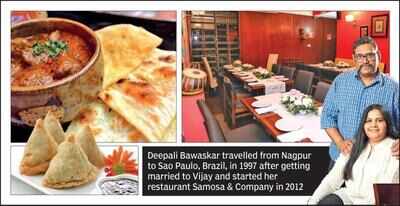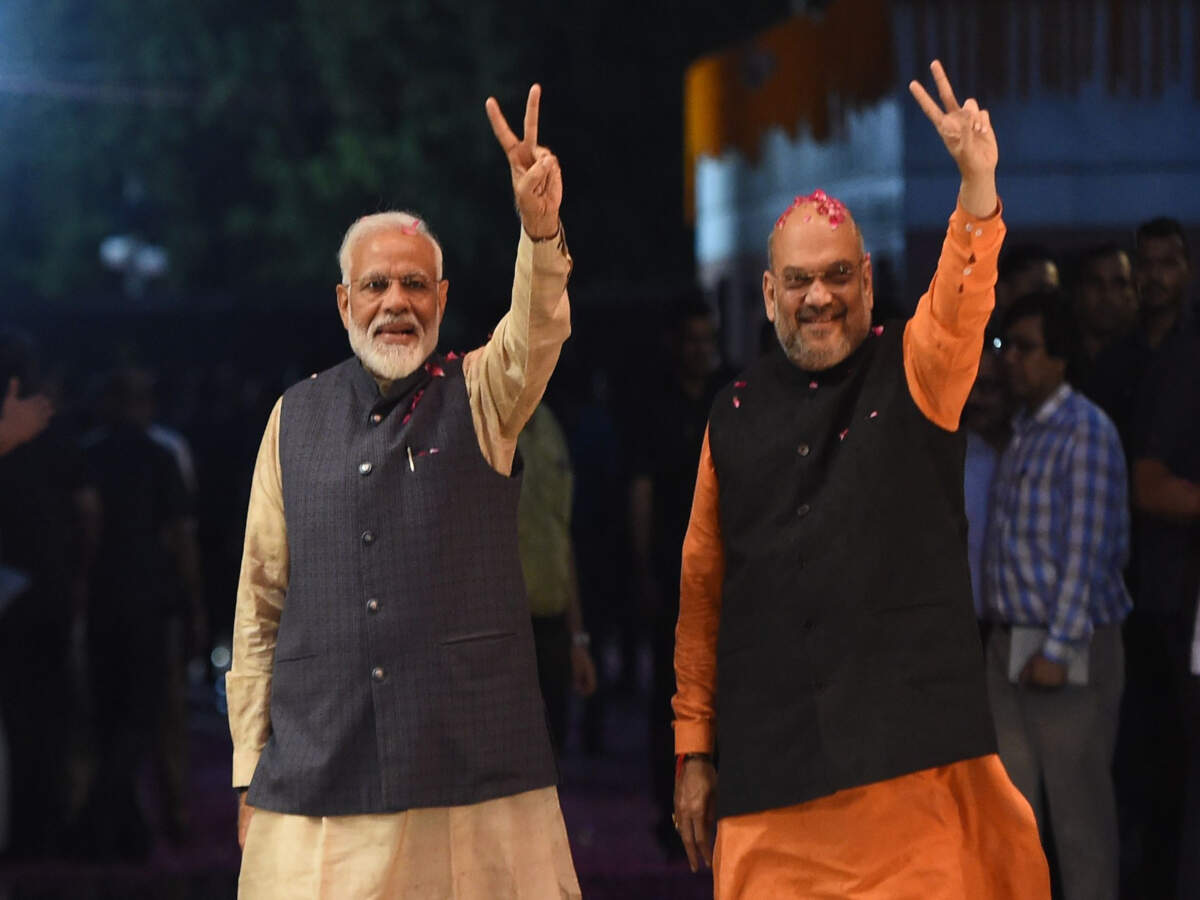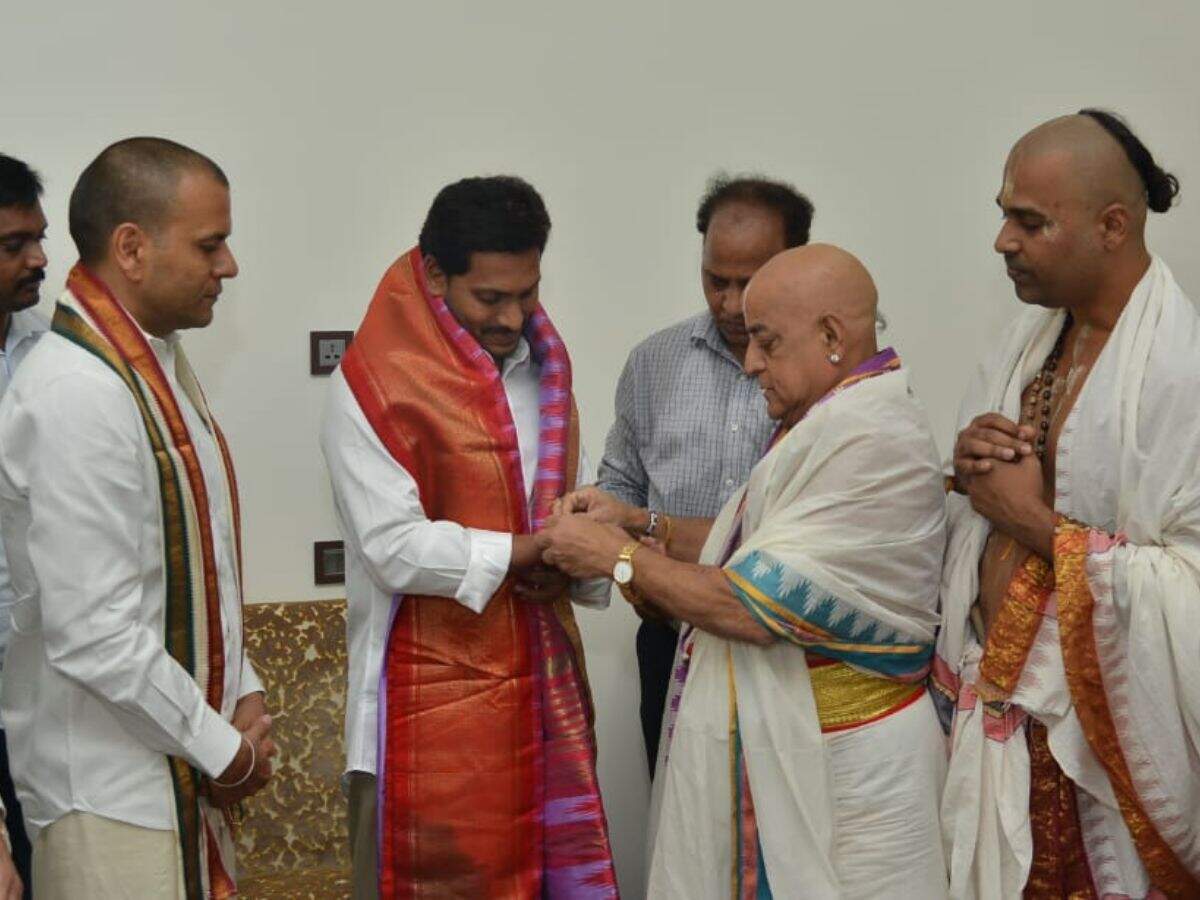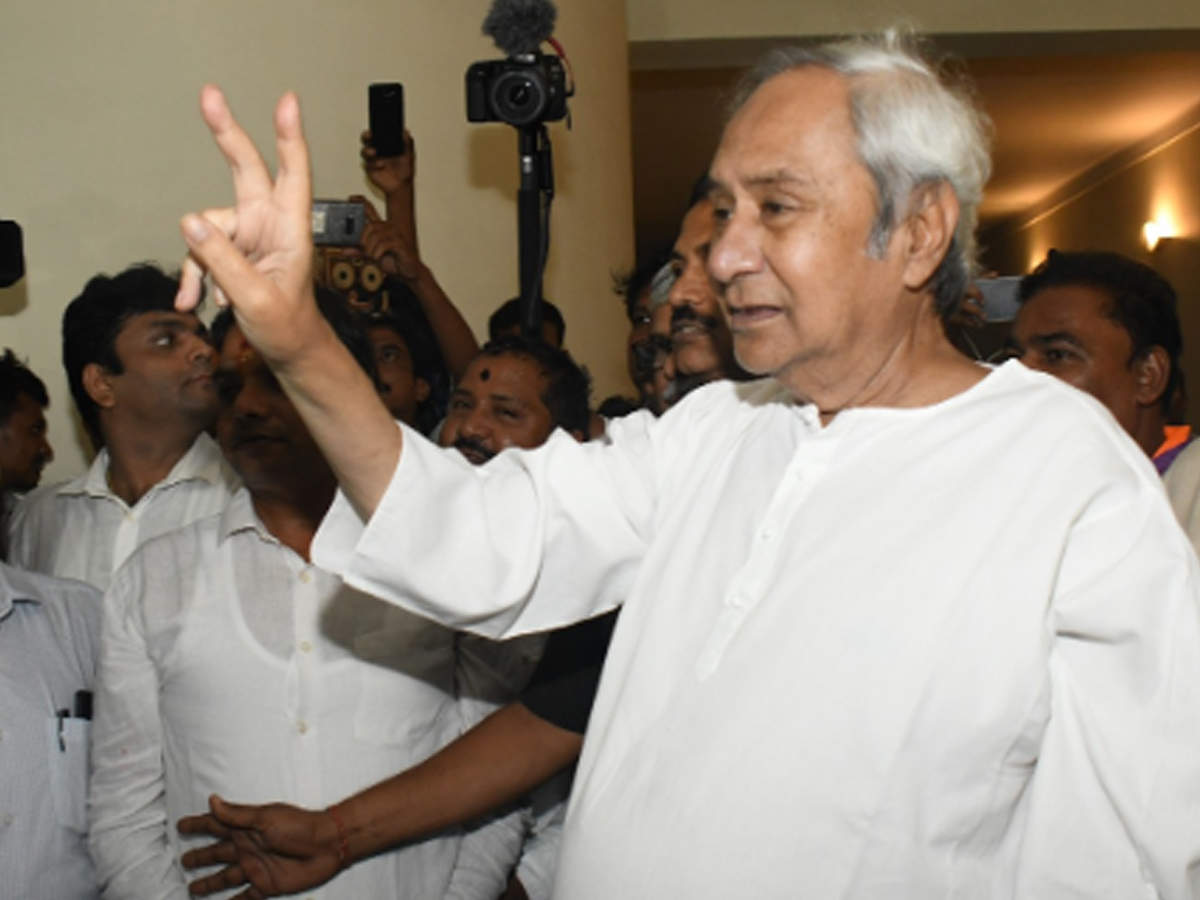
Nagpur: When Deepali Bawaskar travelled from Nagpur to Sao Paulo, Brazil in 1997 after marriage, there was very little to keep her occupied. An M.Sc in Botany, she had little to do as her husband Vijay pursued his job with a pharmaceutical company.
“It is a small Indian community there and we would meet frequently over meals and invite those visiting Brazil,” says Deepali.
“I would cook elaborate meals when friends were coming for dinner. The food was appreciated a lot by all,” she says.
As the word got around about her culinary skills, the couple decided to take part in fairs where their food was much in demand. “People would come to these fairs and ask for us. Even the Indian embassy persons began to order food from us and we got into catering in 2010.”
But the bulk cooking at odd hours began to cause inconvenience to their neighbours. “Indian food is heavily laced with condiments and the aroma wafts around when cooking is done. Besides, I had to get up early to cook when there were bulk orders. This too disturbed the neighbours. So we decided to hire a space,” says Deepali, explaining how their restaurant Samosa & Company came into existence in 2012.
Starting off with a 30 cover restaurant, Bawaskars have scaled up to 50 covers now. “I have a Brazilian guru who taught me the finer points of setting up and running a restaurant. But the menu was mounted by me and there are around 30 dishes on it,” she says. The couple received good of support from the media. “A Brazilian blogger wrote about our place which got us a lot of traction. Local media too wrote about us when we opened. Besides the fairs had made us popular,” she says.
Tourists familiar with Indian food visit the place though the locals are still weary as their perception is that Indian food is very spicy, says Deepali. “But the chilies available in Brazil are very mild and this sort of balances,” she says.
The most popular items on the menu are samosa, butter chicken, navratan korma and mutton sukha. “Most of the ingredients are available locally but some condiments like kasuri methi and chat masala I have to source from India,” she says.
There are other difficulties like training the staff. “I have two Pakistanis, one Nepali and one Indian working in the kitchen. The rest are locals. But these people keep moving and every time I have to start anew,” says Deepali.
Experimenting with food has not been very successful for the couple though. “We tried fusion food but were advised against it. I also did a course in molecular gastronomy and we tried serving yogurt balls, rose syrup sphere but that didn’t work well. In Indian restaurants I see efforts being made in food presentations, that’s a welcome change,” she says.
“It is a small Indian community there and we would meet frequently over meals and invite those visiting Brazil,” says Deepali.
“I would cook elaborate meals when friends were coming for dinner. The food was appreciated a lot by all,” she says.
As the word got around about her culinary skills, the couple decided to take part in fairs where their food was much in demand. “People would come to these fairs and ask for us. Even the Indian embassy persons began to order food from us and we got into catering in 2010.”
But the bulk cooking at odd hours began to cause inconvenience to their neighbours. “Indian food is heavily laced with condiments and the aroma wafts around when cooking is done. Besides, I had to get up early to cook when there were bulk orders. This too disturbed the neighbours. So we decided to hire a space,” says Deepali, explaining how their restaurant Samosa & Company came into existence in 2012.
Starting off with a 30 cover restaurant, Bawaskars have scaled up to 50 covers now. “I have a Brazilian guru who taught me the finer points of setting up and running a restaurant. But the menu was mounted by me and there are around 30 dishes on it,” she says. The couple received good of support from the media. “A Brazilian blogger wrote about our place which got us a lot of traction. Local media too wrote about us when we opened. Besides the fairs had made us popular,” she says.
Tourists familiar with Indian food visit the place though the locals are still weary as their perception is that Indian food is very spicy, says Deepali. “But the chilies available in Brazil are very mild and this sort of balances,” she says.
The most popular items on the menu are samosa, butter chicken, navratan korma and mutton sukha. “Most of the ingredients are available locally but some condiments like kasuri methi and chat masala I have to source from India,” she says.
There are other difficulties like training the staff. “I have two Pakistanis, one Nepali and one Indian working in the kitchen. The rest are locals. But these people keep moving and every time I have to start anew,” says Deepali.
Experimenting with food has not been very successful for the couple though. “We tried fusion food but were advised against it. I also did a course in molecular gastronomy and we tried serving yogurt balls, rose syrup sphere but that didn’t work well. In Indian restaurants I see efforts being made in food presentations, that’s a welcome change,” she says.
LOK SABHA ELECTION RESULT 2019
AP election results 2019Telangana elections results 2019Odisha election results 2019Chhattisgarh election results 2019Punjab election results 2019Uttarakhand election results 2019Karnataka election results 2019Madhya Pradesh election results 2019Himachal Pradesh election results 2019Haryana election results 2019Delhi election results 2019Maharashtra election results 2019Kerala election results 2019Bihar election results 2019Gujarat Lok Sabha election results 2019UP Lok Sabha election results 2019West Bengal election results 2019Tamil Nadu election results 2019
#ElectionsWithTimes
Quick Links
Lok Sabha Election Schedule 2019Lok Sabha Election NewsDelhi Capitals teamMI team 2019Rajasthan Royals 2019RCB team 2019Maharashtra Lok Sabha ConstituenciesBJP Candidate ListBJP List 2019 TamilnaduShiv Sena List 2019AP BJP List 2019Mamata BanerjeeBJP List 2019 MaharashtraPriyanka GandhiBJP List 2019 KarnatakaAMMK Candidate List 2019BJP List 2019 WBLok Sabha Elections in Tamil NaduBSP List 2019 UPNews in TamilLok Sabha Poll 2019Satta Matka 2018PM ModiMahagathbandhanNagpur BJP Candidate ListChandrababu NaiduTamil Nadu ElectionsUrmila MatondkarNews in TeluguMadras High CourtTejashwi YadavArvind KejriwalTejasvi SuryaPawan KalyanArvind KejriwalYogi AdityanathJaya PradaSatta King 2019Srinagar encounter
Get the app









